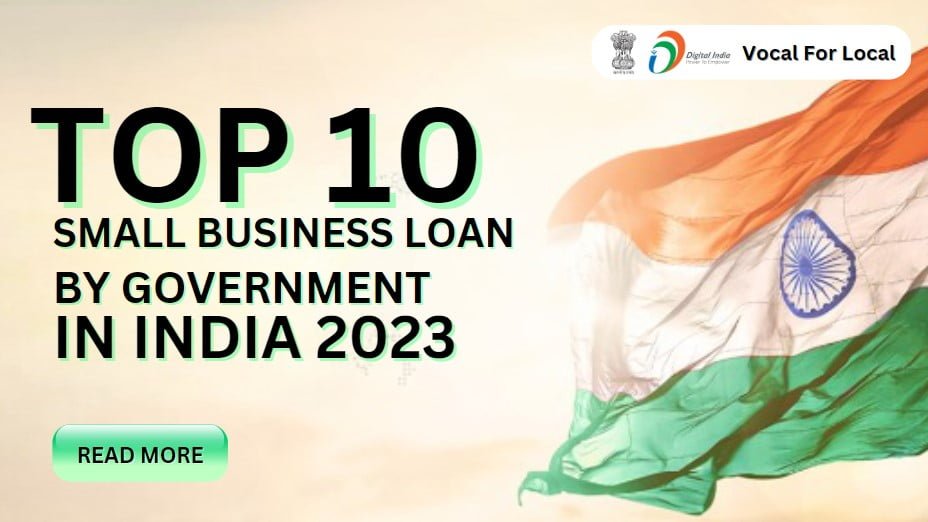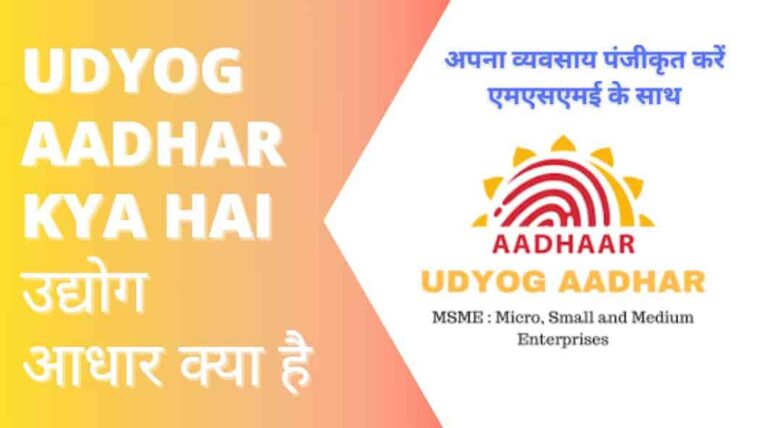Want to start a business and need small business loan by government? Then read this article on the top 10 small business loans by government in India for 2023.
Starting a small business in India can be challenging, but fortunately, the government offers several loan programs to help entrepreneurs get their ventures off the ground. In this article, we will discuss the top 10 small business loans offered by the government in India.
- Micro Units Development and Refinance Agency (MUDRA) Loan
- Pradhan Mantri MUDRA Yojana (PMMY)
- Credit Guarantee Fund Scheme for Micro and Small Enterprises (CGTMSE)
- Prime Minister’s Employment Generation Programme (PMEGP)
- Annapurna Scheme
- Mahila Udyam Nidhi Scheme
- Swarnajayanti Gram Swarozgar Yojana (SGSY)
- Stand-Up India Scheme
- National Small Industries Corporation (NSIC) Schemes
- Swavalamban Scheme
Let discuss in detail all about the small business loan by government in india and how any enterprises can avail these loan.
Micro Units Development and Refinance Agency (MUDRA) Loan
The Micro Units Development and Refinance Agency (MUDRA) loan is a financial scheme launched by the Government of India to provide credit to small businesses and entrepreneurs. The goal of the scheme is to provide access to affordable credit to small businesses that may not have access to traditional bank loans.
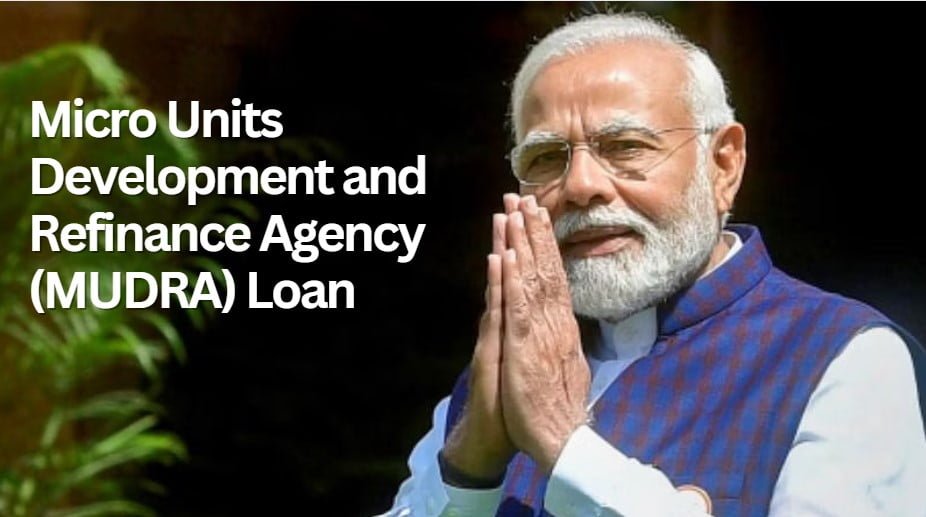
The MUDRA loan is available to small businesses in all sectors, including agriculture, manufacturing, service, and trading. The loan can be used for various purposes, including purchasing equipment, setting up a new business, or expanding an existing business.
To be eligible for the MUDRA loan, the small business must be registered in India and have a turnover of less than INR 10 crore (approximately $1.4 million). The loan amount is based on the business’s financial need and capacity to repay.
The MUDRA loan is offered through various banks and financial institutions, including public sector banks, private sector banks, and microfinance institutions. The loan can be availed through various channels, including online portals, mobile apps, and bank branches.
Overall, the MUDRA loan is a useful financial tool for small businesses and entrepreneurs looking to access affordable credit for their business needs. It helps to support the growth and development of small businesses, contributing to the overall development of the economy.
The Micro Units Development and Refinance Agency (MUDRA) loan is a government-funded program that provides financial assistance to small businesses in the form of loans. The loan is designed to help micro and small enterprises (MSEs) in the manufacturing, trading, and service sectors. The loan amount ranges from Rs. 50,000 to Rs. 10 lakh, and the loan is offered at a competitive interest rate.
Pradhan Mantri MUDRA Yojana (PMMY)
The Pradhan Mantri MUDRA Yojana (PMMY) is a scheme launched by the Government of India to provide financial assistance to small businesses in the form of loans. The scheme aims to provide easy and affordable credit to small businesses, particularly those owned by women, Scheduled Castes, Scheduled Tribes, and other marginalized groups.
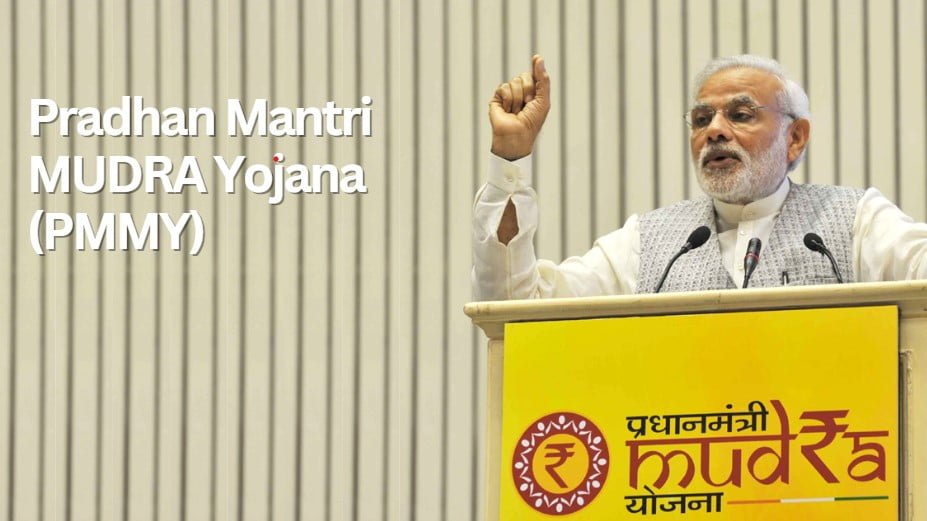
Under the PMMY scheme, loans are provided in three categories:
- Shishu: Loans up to Rs. 50,000 for start-ups or very small businesses.
- Kishor: Loans between Rs. 50,000 and Rs. 5 lakh for small businesses that have been in operation for more than a year.
- Tarun: Loans between Rs. 5 lakh and Rs. 10 lakh for small businesses that have been in operation for more than 3 years.
The PMMY scheme is implemented through banks, financial institutions, and microfinance institutions. Interest rates on these loans are generally lower than those offered by traditional banks and the repayment period can be up to 7 years.
Eligibility criteria for the PMMY scheme include:
- The business should be a micro-enterprise or small business with a turnover of up to Rs. 10 crore per year.
- The business should be in a viable and sustainable sector.
- The business owner should have a business plan and a repayment capacity.
To apply for a PMMY loan, small business owners can visit the nearest bank or financial institution, fill out an application form, and provide the necessary documents. The loan amount and interest rate will be determined based on the business owner’s credit score, business plan, and repayment capacity.
A government-funded scheme called the Pradhan Mantri MUDRA Yojana (PMMY) offers loans to small enterprises as financial support. The loan is intended to aid micro and small businesses (MSEs) in the service, trading, and manufacturing industries. The loan is being offered at a competitive interest rate, with loan amounts ranging from 50,000 to 10 lakh rupees. Small enterprises can get access to financing in the form of loans through the Pradhan Mantri Mudra Yojana credit programme.
Credit Guarantee Fund Scheme for Micro and Small Enterprises (CGTMSE)
The Credit Guarantee Fund Scheme for Micro and Small Enterprises (CGTMSE) is a government-run scheme in India that provides credit guarantee to micro and small enterprises (MSEs) in order to improve their access to bank finance. The scheme aims to encourage banks to lend to MSEs by reducing the risk of default and providing collateral-free loans to these businesses.

Under the CGTMSE, the government provides a guarantee to the lending bank for a portion of the loan extended to the MSE. This reduces the risk of default for the bank, making it more willing to lend to MSEs that may not have the collateral or credit history to secure traditional bank loans.
The CGTMSE is administered by the Credit Guarantee Fund Trust for Micro and Small Enterprises (CGFT), which is an autonomous body under the Ministry of Micro, Small and Medium Enterprises (MSME). The CGFT is responsible for implementing the CGTMSE and providing credit guarantees to MSEs.
Eligibility for the CGTMSE is based on the size and sector of the business. To be eligible, MSMEs must have an annual turnover of less than INR 50 crore (approx. $6.7 million) and be engaged in manufacturing, trading, or service sector activities and registered under the new udyam registration portal.
The CGTMSE has been successful in increasing the flow of credit to MSEs and has helped these businesses to grow and expand. It is an important tool for promoting the development of small businesses in India.
The Credit Guarantee Fund Scheme for Micro and Small Enterprises (CGTMSE) is a government-funded program that provides financial assistance to small businesses in the form of loans. The loan is designed to help micro and small enterprises (MSEs) in the manufacturing, trading, and service sectors. The loan amount ranges from Rs. 50,000 to Rs. 10 lakh, and the loan is offered at a competitive interest rate.
Prime Minister’s Employment Generation Programme (PMEGP)
The Prime Minister’s Employment Generation Programme (PMEGP) is a government initiative in India that aims to promote entrepreneurship and generate employment opportunities in the country. It is implemented by the Ministry of Micro, Small and Medium Enterprises (MSME) and is funded by the Government of India and the National Bank for Agriculture and Rural Development (NABARD).
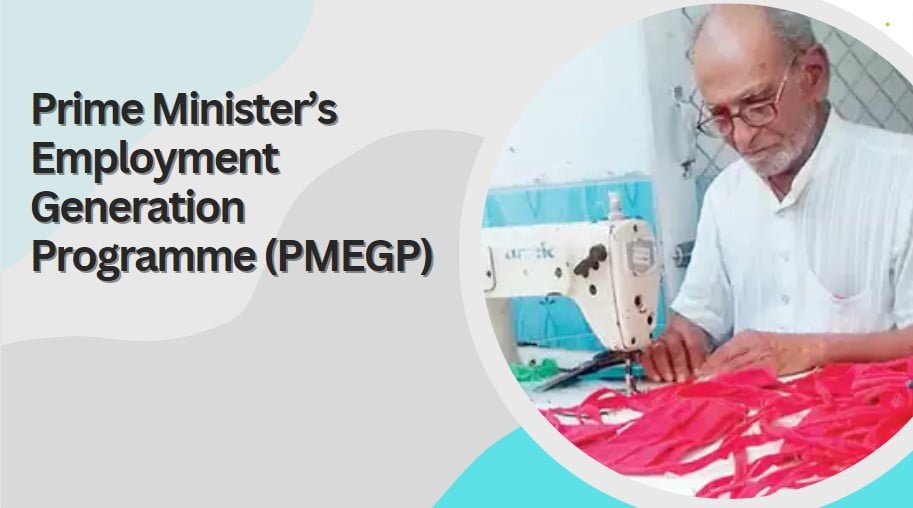
The PMEGP targets individuals who want to start their own small businesses, particularly those who are unemployed or have limited access to financial resources. It provides financial assistance in the form of loans and subsidies to help them set up their businesses.
Eligibility criteria for PMEGP:
- Individuals who are at least 18 years old and are citizens of India
- Those who do not own any business or are not a partner in any business
- Individuals who have not availed any other government assistance for setting up a business
To apply for PMEGP, individuals need to submit a project proposal detailing the business idea, market potential, financial projections, and details of the proposed location. The proposal is then evaluated by a committee, which decides whether to approve the loan and subsidy amount based on the feasibility of the project.
The PMEGP has helped thousands of individuals across India set up their own businesses and create employment opportunities for others. It has also played a vital role in promoting entrepreneurship and supporting the growth of the small business sector in the country.
The Prime Minister’s Employment Generation Programme (PMEGP) is a government-funded scheme that provides financial assistance to small businesses in the form of loans. The loan is designed to help micro and small enterprises (MSEs) in the manufacturing, trading, and service sectors. The loan amount ranges from Rs. 25,000 to Rs. 10 lakh, and the loan is offered at a competitive interest rate. Prime Minister’s Employment Generation Programme offers small businesses financial support for starting microbusinesses in the non-farm sector.
Annapurna Scheme
The Annapurna Scheme is a government initiative in India that aims to support small businesses by providing them with financial assistance. Under the scheme, small businesses can apply for loans of up to Rs. 50 lakhs (approx. $68,000) to help them expand their operations, invest in new technology, or upgrade their facilities.

To be eligible for the Annapurna Scheme, businesses must have a valid Udyog Adhaar number now known as udyam registration number and must not have availed any previous loan from the government or any other financial institution. The scheme is aimed at small businesses in the manufacturing, service, and trading sectors.
The Annapurna Scheme is administered by the Ministry of Micro, Small, and Medium Enterprises (MSME) and is implemented through participating banks and financial institutions. The scheme aims to help small businesses overcome the challenges of limited access to credit and financial resources, and to help them grow and create new jobs.
The Annapurna Scheme is a government-funded program that provides financial support to small businesses in the form of loans. The loan is designed to help micro and small enterprises (MSEs) in the food processing sector. The loan amount ranges from Rs. 50,000 to Rs. 10 lakh, and the loan is offered at a competitive interest rate. So do get a udyam msme registration certificate to be eligible for these loans.
Mahila Udyam Nidhi Scheme
The Mahila Udyam Nidhi Scheme is a government initiative aimed at providing financial assistance to women entrepreneurs in India. This scheme is aimed at promoting entrepreneurship among women and helping them establish their own small businesses.
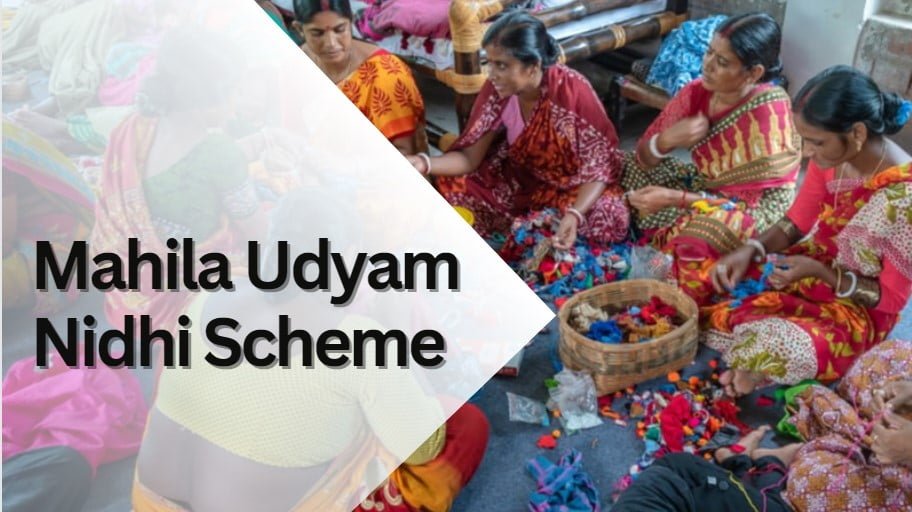
Under this scheme, women entrepreneurs can apply for a loan of up to Rs. 10 lakhs to start or expand their small business. The loan amount can be used for purchasing machinery, raw materials, and other business-related expenses.
To be eligible for this scheme, women entrepreneurs must have a viable business plan and should not be receiving any other financial assistance from the government. They must also be registered as a business entity and must have a turnover of less than Rs. 50 lakhs per year.
The loan under this scheme is available at a subsidized interest rate and has a repayment period of up to 5 years. The loan is also backed by a collateral-free guarantee from the National Credit Guarantee Trust Company (NCGTC).
Overall, the Mahila Udyam Nidhi Scheme is a great opportunity for women entrepreneurs to get the financial support they need to start and grow their small businesses.
The Mahila Udyam Nidhi Scheme is a government-funded program that provides financial assistance to small businesses owned by women in the form of loans. The loan is designed to help micro and small enterprises (MSEs) in the manufacturing, trading, and service sectors. The loan amount ranges from Rs. 50,000 to Rs. 10 lakh, and the loan is offered at a competitive interest rate.
Swarnajayanti Gram Swarozgar Yojana (SGSY)
The Swarnajayanti Gram Swarozgar Yojana (SGSY) is a scheme launched by the Government of India in 1999 to promote self-employment in rural areas. The scheme aims to provide financial assistance to small business enterprises that are owned and operated by the rural poor.

Under the SGSY scheme, the government provides financial assistance to the small business enterprises in the form of loans, grants, and subsidies. The financial assistance is provided through a number of channels including banks, self-help groups, and non-governmental organizations (NGOs).
The main objectives of the SGSY scheme are to:
- Promote self-employment in rural areas
- Create sustainable livelihood opportunities for the rural poor
- Enhance the income and employment of the rural poor
- Promote the development of micro, small and medium enterprises (MSMEs) in rural areas
To be eligible for the SGSY scheme, the small business enterprise must be owned and operated by the rural poor and should not be a part of any other scheme. The enterprise should also have the potential to generate income and employment for the rural poor.
The SGSY scheme has been successful in promoting self-employment in rural areas and has helped create sustainable livelihood opportunities for the rural poor. It has also contributed to the development of MSMEs in rural areas, which has helped to boost the economy of these areas.
The Swarnajayanti Gram Swarozgar Yojana (SGSY) is a government-funded scheme that provides financial assistance to small businesses in the form of loans. The loan is designed to help micro and small enterprises (MSEs) in the rural areas. The loan amount ranges from Rs. 50,000 to Rs. 10 lakh, and the loan is offered at a competitive interest rate.
Stand-Up India Scheme
The Stand-Up India Scheme is a government initiative aimed at promoting entrepreneurship and enabling small businesses to access credit and support. The scheme was launched in 2016 as a part of the Prime Minister’s vision for a “New India,” with the goal of encouraging entrepreneurship among women, Scheduled Castes, and Scheduled Tribes.

Under the Stand-Up India Scheme, the government provides financial help of up to Rs. 10 lakhs to individual borrowers and up to Rs. 1 crore to non-individual borrowers for setting up new enterprises. The scheme also provides access to credit through participating banks, along with support for training, mentorship, and market linkages.
In addition, the Stand-Up India Scheme has set up a web portal to provide information on various government schemes and initiatives related to entrepreneurship, as well as to help small businesses connect with potential investors and customers.
Overall, the Stand-Up India Scheme aims to create a supportive ecosystem for small businesses and entrepreneurs, enabling them to grow and thrive in a competitive marketplace.
This scheme provides loans to SC, ST, and women entrepreneurs, ranging from INR 10 lakhs to INR 1 crore, to start or expand their businesses. This scheme provides financial assistance to small enterprises in the form of a 20% subsidy on the loan amount, ranging from INR 10 lakhs, for upgrading their technology.
National Small Industries Corporation (NSIC) Schemes
National small industries corporation schemes (NSIC) offers various schemes for the promotion and development of small businesses, including financing, marketing, and technical support.

The National Small Industries Corporation (NSIC) offers a range of schemes to support small and medium enterprises (SMEs) in India. Some of these schemes include:
- Marketing Assistance Scheme: This scheme provides marketing assistance to SMEs by participating in exhibitions, trade fairs, and buyer-seller meets both nationally and internationally.
- Performance and Credit Rating Scheme: This scheme helps SMEs improve their creditworthiness and access bank loans by providing them with an independent rating based on their financial performance.
- Vendor Development Programme: This programme helps SMEs improve their quality, productivity, and competitiveness by providing them with training and technical assistance.
- Technology Upgradation Scheme: This scheme helps SMEs upgrade their technology and improve their product quality by providing them with financial assistance for the purchase of new machinery and equipment.
- Industrial Infrastructure Upgradation Scheme: This scheme helps SMEs improve their production capacity by providing them with financial assistance for the construction of new industrial sheds, warehouses, and other infrastructure.
- Training and Development Programme: This programme provides training and development opportunities to SME owners, employees, and entrepreneurs to help them improve their skills and knowledge.
- Credit Linked Capital Subsidy Scheme: This scheme provides capital subsidies to SMEs to help them upgrade their technology and improve their competitiveness.
- Cluster Development Programme: This programme helps SMEs in a particular geographic area to come together and form clusters to improve their competitiveness and access to markets.
Swavalamban Scheme
Swavalamban Scheme provides financial assistance to small enterprises in the form of a 10% subsidy on the loan amount, up to INR 2 lakhs.

The Swavalamban Scheme is a government initiative in India aimed at providing financial assistance to small businesses. It is designed to help small and medium enterprises (SMEs) access affordable credit, and improve their competitiveness and sustainability.
Under the scheme, the government provides a matching contribution of 10% for every contribution made by the employee to the National Pension System (NPS). The contribution is capped at a maximum of INR 1,000 per year, and the government contribution is limited to INR 1,000 per year as well.
The scheme also provides a tax benefit of INR 50,000 per year under Section 80CCD (1B) of the Income Tax Act, 1961, for contributions made by the employee to the NPS.
To be eligible for the Swavalamban Scheme, the business must have a turnover of less than INR 100 crore per year, and should employ less than 50 employees. The business must also be registered in India and be engaged in a non-agricultural activity.
Overall, the Swavalamban Scheme is aimed at helping small businesses access affordable credit and improve their competitiveness, while also providing a financial security to the employees of these businesses through the NPS.
Swavalamban Scheme is a pension scheme launched by the Government of India for the unorganized sector workers in 2010. The scheme aims to provide a minimum pension of INR 1000 per month to eligible workers after the age of 60 years. It is a voluntary, contributory, and defined benefit scheme where the worker contributes a minimum of INR 55 per month towards the pension fund. The government also provides a matching contribution of INR 1000 per year. The scheme is administered by the National Pension System Trust (NPS Trust) and is implemented through the National Pension System (NPS). It is available to workers who are not covered under any other social security schemes and have a bank account. The scheme has been successful in providing a regular source of income to the unorganized sector workers in their old age.
Benefits of getting Small Business Loan by Government in India
There are several benefits of getting small business loan by government in India, including:
- Access to capital: Small business loans provide access to capital that can be used to fund various business expenses, such as purchasing inventory, hiring employees, or expanding operations.
- Flexibility: Small business loans offer flexibility in terms of how they can be used and repaid. This can be especially helpful for businesses that need financing to cover unexpected expenses or to take advantage of new opportunities.
- Improved creditworthiness: By responsibly repaying a small business loan, a business can improve its creditworthiness and potentially qualify for more favorable loan terms in the future.
- Increased profitability: Small business loans can provide the funds needed to invest in new equipment, marketing efforts, or other initiatives that can help a business grow and increase profitability.
- Personal and business asset protection: Many small business loans are unsecured, which means that the borrower does not have to put up personal or business assets as collateral. This can help protect a business owner’s personal assets if the business experiences financial difficulties.
Overall, small business loan by government can be an important source of financing for small businesses in India, helping them to grow and succeed.
What are the documents required to get small business loan by government in India?
The documents required to get a small business loan by government in India may vary depending on the lender, but typically include:
- Business plan: This outlines the goals and objectives of the business, as well as the target market, revenue projections, project report and financial projections.
- Financial statements: These documents provide information on the financial health of the business, including balance sheets, income statements, and cash flow statements.
- Tax returns: Lenders will often require several years’ worth of tax returns to evaluate the business’s financial performance.
- Collateral: Some lenders may require collateral to secure the loan, such as real estate or equipment.
- Personal identification documents: Lenders will typically require identification documents such as a passport or driver’s license from the business owner(s).
- Business registration documents: These may include the business’s articles of incorporation or partnership agreements.
- Bank statements: Lenders will often request bank statements to evaluate the business’s current financial situation and creditworthiness.
- Credit report: A credit report provides information on the business’s credit history and can help lenders assess the risk of lending to the business.
- Proof of ownership: Some lenders may require documentation of ownership or equity in the business, like business license udyam registration certificate.
Project report is important for getting Small Business Loans in India
A project report is a detailed document that outlines the proposed plan for a small business. It includes information about the business idea, market analysis, financial projections, and management team.
Having a comprehensive project report is important for small business owners seeking a small business loan in India. This is because lenders want to see that the business has a solid plan in place and is likely to be successful. A project report helps to demonstrate this by providing information about the market opportunity, target customer base, and financial projections.
Additionally, a project report helps lenders to understand the business’s financial needs and how the loan will be used to support the business’s growth and development. It also helps lenders to assess the risk involved in providing a loan to the business, as well as the potential return on investment.
Overall, a project report is a crucial element in the process of applying for a small business loan in India. It provides lenders with the information they need to make an informed decision about whether to provide funding to the business.
How to get Small Business Loans in India with the help of a detailed project report ?
- Research potential lenders: Look into banks, financial institutions, and other lending sources that offer small business loans in India. Compare the terms and conditions, interest rates, and other requirements of each lender.
- Prepare a project report: A project report is a detailed document that outlines the details of your business, including the nature of your business, your target market, your financial projections, and your plans for using the loan.
- Gather necessary documents: Collect all relevant documents, such as financial statements, proof of ownership, business licenses, and tax records, to submit with your loan application.
- Submit your loan application: Submit your completed loan application and project report to the lender along with the required documents. Be prepared to provide additional information or clarification if needed.
- Wait for a decision: The lender will review your application and make a decision on whether or not to approve your loan. If approved, you will receive the loan funds and be required to make regular payments according to the terms of the loan agreement. Overall, it is important to have a well-written and thorough project report in order to increase your chances of getting approved for a small business loan in India.
It is generally not easy to get a small business loan by government in India. There are several factors that lenders consider before approving a loan, such as the creditworthiness of the borrower, the financial health of the business, and the nature of the business.
In order to increase the chances of getting a small business loan by government in India, it is important for the borrower to have a well-prepared business plan, a strong credit score, and a good track record of financial stability. It is also advisable to research different loan options and compare the terms and conditions offered by different lenders.
It is worth noting that the process of getting a small business loan in India may vary depending on the type of loan, the lender, and the borrower’s financial circumstances. Therefore, it is advisable to seek professional guidance and assistance to ensure a smooth and successful loan application process.

